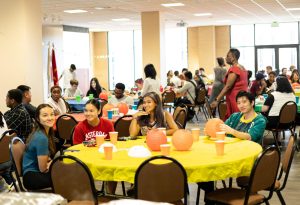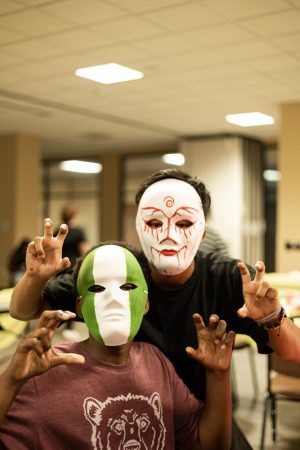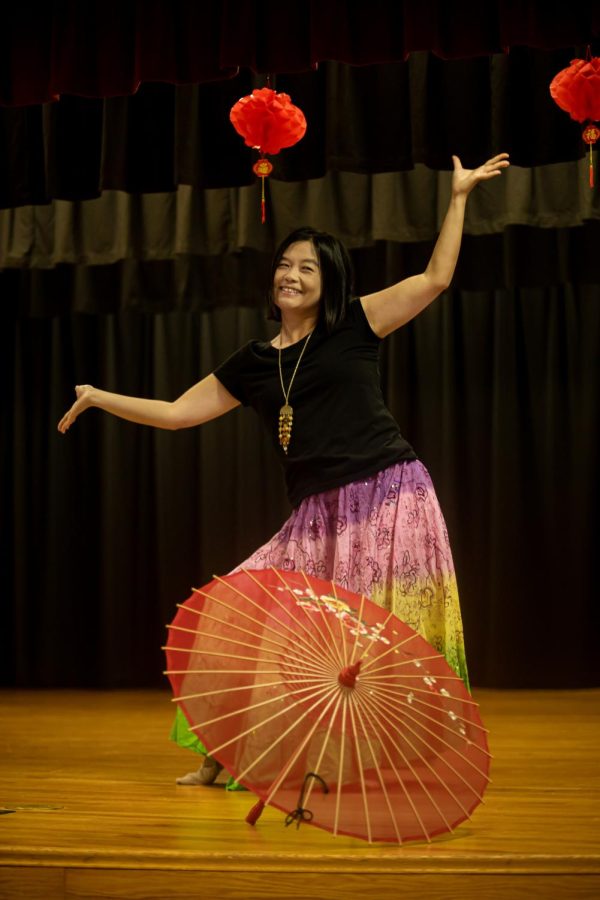Students celebrate Asian culture at Moon Festival
September 20, 2022
As you walk up the stairs to the Hangar, faint music begins to play. You can smell Asian cuisine as soon as you open the door. The room is decorated with bright, welcoming colors. The sun has finally set, and the Moon Festival is here.
On Monday Aug. 12, ULM’s Office of International and Multicultural Affairs and the Asian Student Association hosted the Mid-Autumn Harvest Moon Festival to celebrate an important event in their culture.
The Moon Festival invited any student wanting to come and celebrate or to meet new people.

“As a senior, I’ve heard about the moon festival, but never actually came to see what it is about,” senior biology major Kallynn Higginbotham said. “I finally decided to come this year since I’ve always wanted to.”
The festival had traditional Asian food, speeches on various Asian cultures, soft music and paper masks to paint.
Colorful lanterns hung from the ceiling symbolized the five basic elements: metal, wood, water, fire and earth. They represent the balance and harmony of the world.
Students painted masks however simple or complicated as they pleased. In Asian culture, masks have contributed to the rite of worshiping the moon, sky and earth. Traditionally, the masks vary in colors and shapes to impersonate characters and historical figures.
Soft music played in the background as well. A mix of Korean, Chinese and Vietnamese songs sounded through the speakers.
Marketing professor Joyce Zhou performed a traditional Chinese folk dance called the Umbrella. With strong yet smooth steps, Zhou glided across the floor with a bright red paper umbrella.
Students had a hard time picking their favorite part of the festival.
“The moon festival was so much fun, and I’ve enjoyed everything about it,” senior computer science major Jenna Colmer said.
Communications professor Sara Kim shared how the Moon Festival is celebrated in her home country of South Korea.
“In this holiday, we are celebrating the harvest of the year and thanking our ancestors and nature for providing so much food for our harvest,” Kim said.
The tradition of this holiday traces back nearly two-thousand years earlier in Korea, and it can also be marked back to the Zhou Dynasty in China.

Back then, society was agriculture-based. The harvest gave them their main source of food, which made it important. In addition, to celebrate the harvest, the women of every family would prepare a feast from the freshly gathered crops.
Today, the Harvest Moon starts off several festivals and traditions from various eastern and southeastern Asian cultures around the world. The Harvest Moon is one of the most important holidays in their calendar.
“I really enjoyed Dr. Kim’s speech, and I really enjoyed getting to meet new people that I would not normally have talked to,” freshman political science major Mallory LeBoeuf said.
The Moon Festival gave space for students to learn about other traditions in a fun and interactive way.



